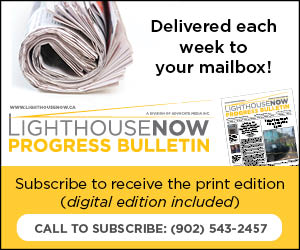
2022-05-11
Patience and purpose
by SUSANNE BECKYour call is important to us." While waiting on the phone, listening to horrible music occasionally interrupted by that non-reassuring message, I had the gift of time to think about patience.
You may have opportunities to think about patience, too. For example, if you'd like to build something, you are probably waiting - for supplies, for people, for call-backs. Perhaps you have a need for health services. That often entails waiting, doesn't it? Or maybe you are sitting in front of a computer screen, watching that blue circle go round and round. Waiting.
We can wait patiently, or impatiently.
One area where impatience often shows its cranky face is when we evaluate our own performance. Fortunately, this is also an area where we have a choice in how we respond.
For example, perhaps we have an expectation that we should perform better, smarter, faster and more perfectly. "This will only take 10 minutes," she says, confidently. An hour later, the task still unfinished, impatience boils up.
Another area ripe for opportunities for impatience is around learning and relearning. For example, "I've already learned this skill last year. I haven't used it since but I'm sure I'll remember." Hah! Not likely, as I find that I need to relearn, almost as if I'd never seen this before. Does that sound familiar to you?
Like me, you may have also observed impatience in others as they learn or act, especially if they start with a belief that something should take no time at all. The stronger the expectation that something will be quick and easy, the greater the frustration when reality doesn't come through.
The common element in these frustrating scenarios is having an expectation that isn't fulfilled by reality. Reality can be so annoying.
Many of us get satisfaction from planning. We like to know what lies ahead. We prepare and we take preventive action for things that could go wrong. We like solid timelines and progress.
However, not everything can be completely planned in advance. Much like driving down a winding road, we can't see what's coming up until we get closer. Impatience doesn't make the route any clearer.
Impatience can bring frustration and dissatisfaction, and make relationships worse rather than better. If you find impatience is having a negative impact on your life, then here are a couple of suggestions for you.
First, look at the expectation that is connected to your impatience. Ask yourself, "Is this expectation based on reality? Or did I set it arbitrarily? Is holding on to this expectation helping me or hurting me?"
Recognize that if you created the expectation, then it's quite likely that you can choose to change it.
Second, you have a purpose for your wait. When I sit on hold on the phone, my purpose is to get information. If we remember the purpose of what we're waiting for, patience may come more easily. If your wait is moving you toward fulfilling that purpose, then you are making progress. The progress may not be as fast as you want, but it is progress.
We're not going to eliminate all of our opportunities for impatience. But if we can remember our purpose and control our expectations, we may find it a little easier to choose patience.
How's your patience? Let me know at choices@focusonclarity.com or by mail c/o Progress Bulletin.
To your choices! ~ Susanne ~
Susanne Beck, RTC is Reality Therapy Certified by the William Glasser Institute






